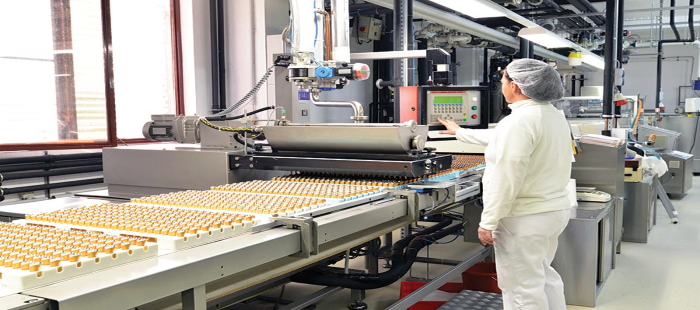
The food and beverage industry is the UK’s largest manufacturing sector, annually contributing almost £30bn to the economy and employing over 400,000 people.
This industry is absolutely crucial to the national security and wellbeing of our economy; however, there are some challenges that must be surmounted in the coming years.
In this blog, we’ll be exploring some of those challenges and investigating how the industry can adapt and pivot to ensure long term prosperity.
The Market
The food and drinks industry has proved to a remarkably resilient sector over the years, and as we begin to assess how Brexit and the fallout from the COVID-19 pandemic will impact it, there will be a more significant opportunity to encourage British food and drink production.
The industry is the largest manufacturing sector in the UK, accounting for about 17% or £28.2 billion of the entire industry. It is also a sector that is growing, in fact, between 1997 and 2015 the sector ballooned by 27%, making it not only the fourth fastest-growing UK manufacturing sector in that period, but also significantly outstripping average growth in the industry by 13%.
In the five years between 2010 and 2015, some key statistics point to just how quickly the sector is expanding:
- Turnover grew by 28%
- Profits grew by 10%.
- Employees numbers grew by 6% (significantly higher than the 1% experienced in the overall manufacturing sector).
What Influences Could Impact Growth?
Brexit

Brexit could have a significant bearing on the overall growth of the sector since supply chains are likely to be impacted by changing travel and transport legislation. That said, a recent industry survey indicated that 18% of respondents hadn’t made any workforce projections and 32% reported that they didn’t believe that Brexit would impact them at all.
The main reason for the lack of projections is a further need for clarity around EU negotiations, which have stalled significantly since the pandemic took hold.
An Ageing Workforce
Another significant factor that may impact the sector is the ageing workforce. Respondents to a recent Grant Thornton survey reported that they expected 10.5% of their workforce to retire within the next decade.
However, it’s since come to light that these figures may actually be far greater when factoring in workers from across the EU too, and could rise by up to 20%.
Increasing Technical-Based Roles
Based on the results of the same Grant Thornton survey, it’s clear that food prep, logistics and supply roles are easy to fill.
However, technical-based roles such as R&D, engineering and QC roles are presenting a far greater challenge to fill.
The move to a more modern manufacturing setting with increasing automation and the greater reliance of robotics will mean that there will be a requirement for highly skilled workers who can work with new technology.
Not only will this further modernise the industry, but it will also help to drive productivity, growth and efficiency, which is why it’s so essential that the new generation of employees are skilled enough to work in a changing industry.
COVID-19
The pandemic will undoubtedly drive significant change in the food and beverage industry. Businesses were previously reluctant to store extra capacity in warehouses or on their production line; however, this model may change, requiring further capacity and storage capabilities for businesses to account for any such occurrences in the future.
We’ve also seen that the added complexity of the virus has forced a change in the way that manufacturing businesses are operating in order to adhere to social distancing.
How Can the Industry Adapt?

The nature of the sector means that it must continually evolve to suit economic needs and the demands of the consumer.
However, this evolution doesn’t solely revolve around developing new products; it must also incorporate:
Automation – Automation has played a role in the rise of crucial robotics and Industry 4.0, which is continuing to transform the efficiency, productivity and financial implications of the sector.
Improving the Supply Chain – Aligning every step of the supply chain from farmers and manufacturers, to retail and consumer is vitally important if the sector is to continue pushing growth.
Consumer Choice – The industry must continue to dynamically adapt to changing customer requirements, particularly where the pandemic and Brexit are concerned. It’s also vital that manufacturers lead the way when it comes to health, wellness, nutrition and wastage policies.
The consumer dictates the supply chain, which is why it’s vital to food and drink manufacturing businesses to understand the changing behaviours of their consumers. Factors such as the economy, health and wellbeing, and political influence can all serve to change the wants and needs of the consumer. Efficiency, development and the bottom-line are all effected if a company is unable to change with the times.
Collaboration – Identifying collaboration opportunities throughout supply chains is certainly something that will significantly benefit every party concerned. For example, this could mean working together to improve technological processes that are outdated, or something as simple as a commitment from each party to improve communication where it lacks.
If you want to learn more about the food industry and further technical information, don’t hesitate to contact us today.
